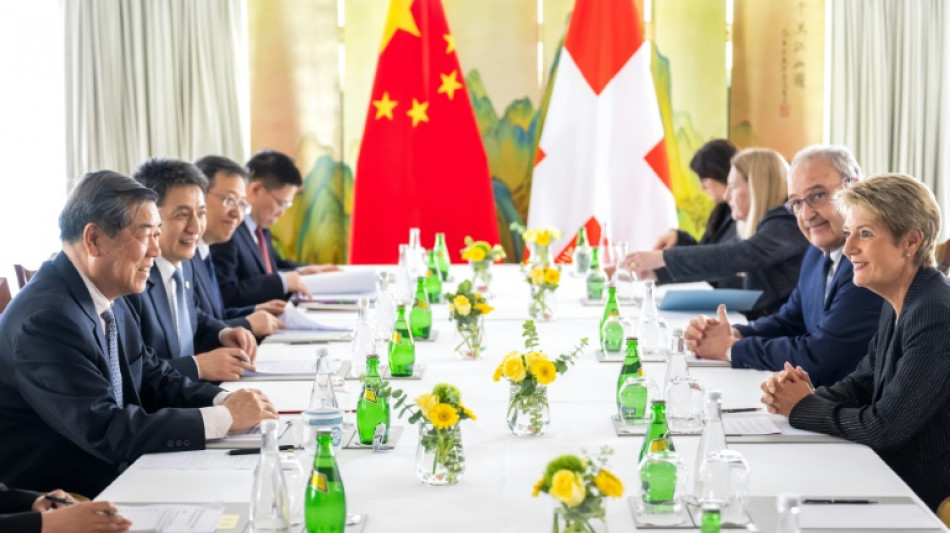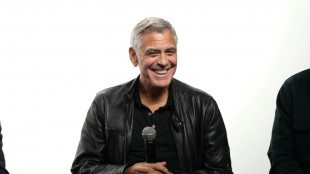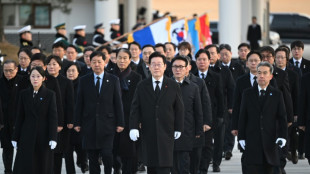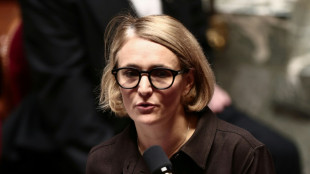
| SCS | 0.12% | 16.14 | $ | |
| CMSD | 0.09% | 23.15 | $ | |
| NGG | -0.54% | 77.35 | $ | |
| BCE | 1.05% | 23.82 | $ | |
| GSK | -0.53% | 49.04 | $ | |
| BCC | -0.26% | 73.6 | $ | |
| RIO | -0.61% | 80.03 | $ | |
| CMSC | -0.15% | 22.65 | $ | |
| RBGPF | -0.37% | 80.75 | $ | |
| BP | -0.06% | 34.73 | $ | |
| AZN | -0.63% | 91.93 | $ | |
| BTI | 0.12% | 56.62 | $ | |
| JRI | 0.22% | 13.61 | $ | |
| VOD | -0.15% | 13.21 | $ | |
| RYCEF | 0.13% | 15.51 | $ | |
| RELX | -1.71% | 40.42 | $ |

US and China meet in 'important step' towards de-escalating trade war
Senior US and Chinese officials were meeting in Geneva Saturday in what Chinese state media described as an "important step" towards resolving the trade war sparked by President Donald Trump's sweeping tariffs.
US Treasury Secretary Scott Bessent and US Trade Representative Jamieson Greer were holding talks with Chinese Vice Premier He Lifeng, in the first such negotiations between the world's two largest economies since Trump slapped steep new levies on China last month and Beijing's robust retaliation.
"The contact in Switzerland is an important step in promoting the resolution of the issue," a commentary published by China's state news agency Xinhua said.
It provided no further details on the progress of closed-door discussions, which began mid-morning Saturday and were due to continue on Sunday.
The talks were being held at the residence of the Swiss ambassador to the United Nations in Geneva, a discrete villa with sky blue shutters near a large parc on the left bank of Lake Geneva.
Tariffs imposed by Trump on the Asian manufacturing giant since the start of the year currently total 145 percent, with cumulative US duties on some Chinese goods reaching a staggering 245 percent.
In retaliation, China slapped 125 percent levies on US goods, cementing what appears to be a near trade embargo between the world's two largest economies.
Trump signalled on Friday that he might lower the sky-high tariffs on Chinese imports, taking to social media to suggest that an "80% Tariff on China seems right!".
"The president would like to work it out with China.... He would like to de-escalate the situation," US Commerce Secretary Howard Lutnick told Fox News on Friday.
Trump's press secretary, Karoline Leavitt, clarified that the US would not lower tariffs unilaterally, adding that China would need to make concessions as well.
In any case, a move to that level would be a symbolic gesture, since the tariffs would remain prohibitively steep.
- 'Not good' relationship -
"The relationship is not good" between Washington and Beijing, said Bill Reinsch, a senior advisor at the Center for Strategic and International Studies.
"We have trade-prohibitive tariffs going in both directions. Relations are deteriorating," said Reinsch, a longtime former member of the American government's US-China Economic and Security Review Commission.
"But the meeting is a good sign."
"I think this is basically to show that both sides are talking -- and that itself is very important," said Xu Bin, professor of economics and finance at the China Europe International Business School.
"Because China is the only country that has tit-for-tat tariffs against Trump's tariffs," he told AFP.
Beijing has insisted the United States must lift tariffs first and vowed to defend its interests.
Bessent has said the meetings in Switzerland would focus on "de-escalation" and not a "big trade deal".
The head of the Geneva-based World Trade Organization said on Friday she welcomed the talks, calling them a "positive and constructive step toward de-escalation".
"Sustained dialogue between the world's two largest economies is critical to easing trade tensions, preventing fragmentation along geopolitical lines and safeguarding global growth," WTO Director-General Ngozi Okonjo-Iweala said, according to a spokesperson.
- 10-percent 'baseline' -
China's vice president went into the discussions buoyed by news on Friday that China's exports rose last month despite the trade war.
The unexpected development was attributed by experts to a re-routing of trade to Southeast Asia to mitigate US tariffs.
Bessent and He were meeting two days after Trump unveiled a trade agreement with Britain, the first deal with any country since he unleashed his blitz of sweeping global tariffs.
The five-page, non-legally binding document with London confirmed to nervous investors that the United States is willing to negotiate sector-specific relief from recent duties -- in this case on British cars, steel and aluminium.
In return, Britain agreed to open up its markets to US beef and other farm products.
But a 10-percent baseline levy on most British goods remained intact and Trump remains "committed" to keeping it in place for other countries in talks with the United States, Leavitt told reporters on Friday.
A few hours later, Trump appeared to contradict her, suggesting there could be some flexibility to the baseline -- but only if the right deals could be reached.
"There could be an exception at some point. We'll see," he said.
"If somebody did something exceptional for us, that's always possible."
burs-da-nl/vog/yad
E.Barbieri--GdR


